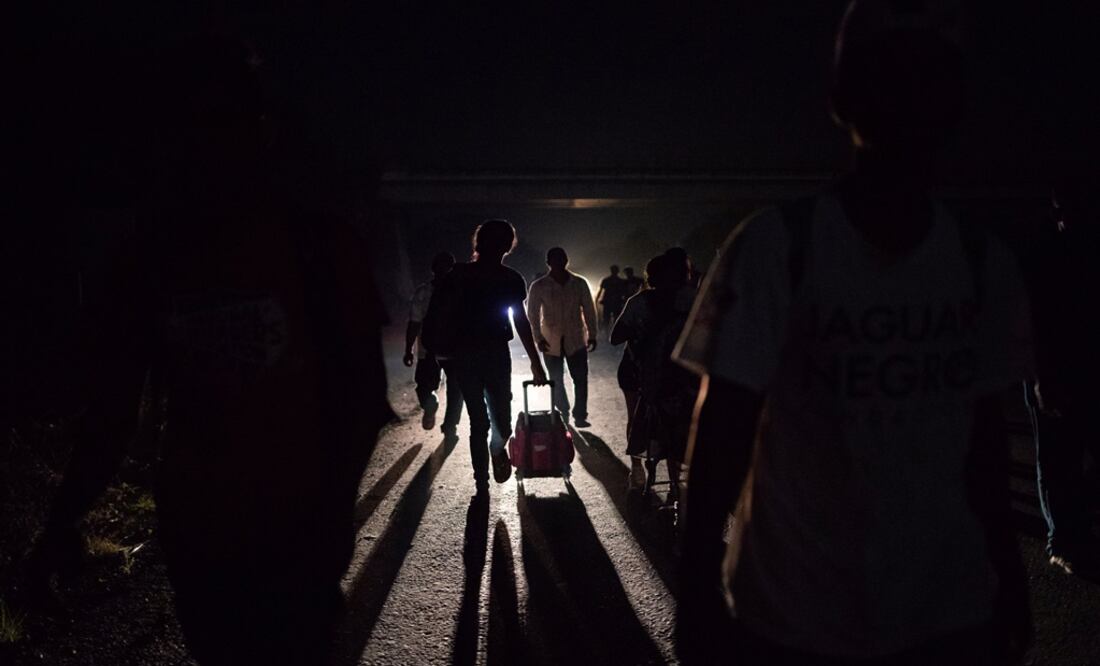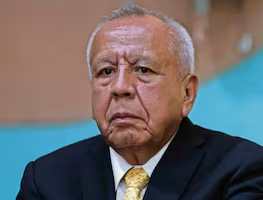Más Información

Clausuran temporalmente relleno de escombros en Jocotepec, Jalisco; Semartnat aclara que no hay permiso

FGR investiga a Mauricio Sahuí, delegado del Infonavit en Yucatán; está ligado al Cártel Inmobiliario de “Los Mañé”
From the crime-ridden Central American cities to the low-growth countries in Africa and Asia , widespread poverty and inequality are the engines of international immigration , as we can witness in the drama taking place these days in southern Mexico .
Although the humanitarian catastrophes caused by wars in the Middle East — refugees trying to reach the European shores in the Mediterranean , for instance—, and southern Asia —the Rohingyas fleeing “ethnic cleansing” in Myanmar —have dominated the narrative in the last years, the current crisis in Mexico reminds us the deep roots of immigration .
In the Americas , one recent case is the Venezuelan exodus to Colombia and other neighboring countries, due to a combination of falling oil prices—from USD $125 a barrel in the early 2010s to USD $68 in August—, poor economic management, internal political problems, and the United States sanctions.
Facing an inflation rate that will reach 1.37% million this year, according to the International Monetary Fund ( IMF ), as many as 1.9 million Venezuelans have emigrated since 2015, said the United Nations High Commissioner for Refugees ( UNHCR ).
Combined with those who preceded them, a total of 2.6 million are believed to have left the country.
More than one million Venezuelans have settled in Colombia , followed by Peru ( 456,000 ), Chile ( 160,000 ), Argentina ( 82,000 ), Mexico ( 65,784 ), and Panama ( 65,415 ).
Almost 280,000 Venezuelans have applied for asylum abroad since 2014 , including 117,000 so far in 2018 , the UNHCR reported.
Peru currently has 45% of all Venezuelan asylum seekers, almost 127,000 individuals , followed by the United States ( 68,000 ), and Brazil ( 33,000 ).
In the first six months of this year, 1,420 Venezuelans have sought asylum in Mexico , a nearly four-fold jump compared to the 361 total Venezuelan asylum applicants for all of 2016 .
Another clear example to support this argument is the case of India, a country where the rapid pace of economic development— per capita growth was 5.5% a year in the last decade, remarked the World Bank —has been insufficient to abate extreme poverty, which is defined as living on less than USD $1.90 a day.
The Asian giant still has around 70.6 million people living in extreme poverty, although it has been surpassed by Nigeria in the world’s first place, with 87 million .
This means that in 2017, India was the largest country of origin of international migrants ( 17 million in total ), followed by Mexico ( 13 million ), Russia ( 11 million ), China ( 10 million ), and Bangladesh ( 7 million ), highlighted the UN’s International migration report 2017.
Cheaper and faster
According to the UN and the International Organization for Migration ( IOM ), global movement is becoming more feasible, partly thanks to the digital revolution, distance-shrinking technology and reductions in travel costs that has made it easier, cheaper and faster for people to move in search of jobs, opportunity, education, and quality of life.
However, the economic gap is greater than ever.
Until the financial crisis of 2007 , rich countries observed higher growth rates than the underdeveloped countries; ten African countries with a total population of 150 million, have a per capita GDP lower than in the years 1950-1960 , while the African average per capita growth was zero between 1980 and 2000 .
Today, the difference between rich countries such as the United States and the less developed countries, such as Madagascar and Laos is 50 to 1.
Back in 1960 , it was from 10 to 1 . Even 1% of the poorest population in Denmark has a higher income than 95% of the inhabitants of Mali , Madagascar , and Tanzania .
Of course, international migration is a two-way street sharing mutual benefits for countries of origin and receiving countries.
There is no doubt that the 800,000 asylum seekers which were allowed in Germany between 2014 and September 2017 —mostly from war-torn Syria , Afghanistan , and Iraq , yet also from Iran , Eritrea , and Albania —will sustain the economic growth over the long term as population replacement, due to the low birth rates in the European country.
In the United States , authorized immigrants pay an estimated USD $223 billion in federal taxes a year and USD $104 billion in local and state taxes, while undocumented immigrants pay USD $11.7 billion in local and state taxes.
Working overseas, said a report from the World Economic Forum ( WEF ) boost individual salaries by USD $21,000 a year on average; 45% of people living abroad expressed that their existing jobs paid more internationally.
Singapur
is considered the best place to live as a foreigner, followed by New Zealand and Germany .
Foreigners in Switzerland , the U.S. , and Hong Kong are the best paid.
In 2016, migrants from developing countries sent home nearly USD $413 billion in remittances .
“Remittances constitute a significant source of household income that improves the livelihoods of families and communities through investments in education, health, sanitation, housing and infrastructure,” stressed the UN.
Countries of destination, it added, benefit significantly from migration as migrants “often fill critical labor gaps, create jobs as entrepreneurs and pay taxes and social security contributions. Some migrants are among the most dynamic members of the host society contributing to the development of science and technology and enriching their host communities by providing cultural diversity.”
No wonder the caravan of more than 7,000 refugees escaping desperate poverty , repression and rampant violence in Central America , in spite of the scorching sun, the Trump administration threats and the tear gas launched by the Mexican police at the Guatemalan border, chanted “ Migrants are not criminals, we are international workers ” and “Why kill us? We are the hope!”
Editing by Sofía Danis
More by Gabriel Moyssen








